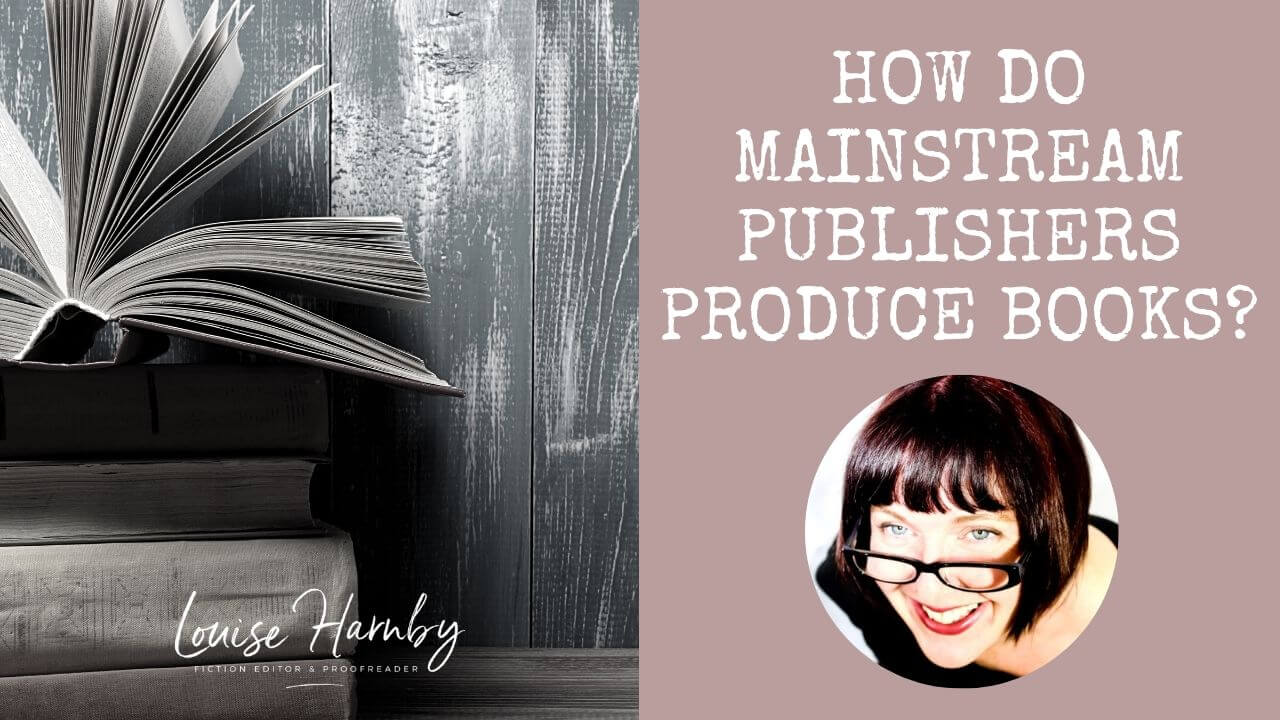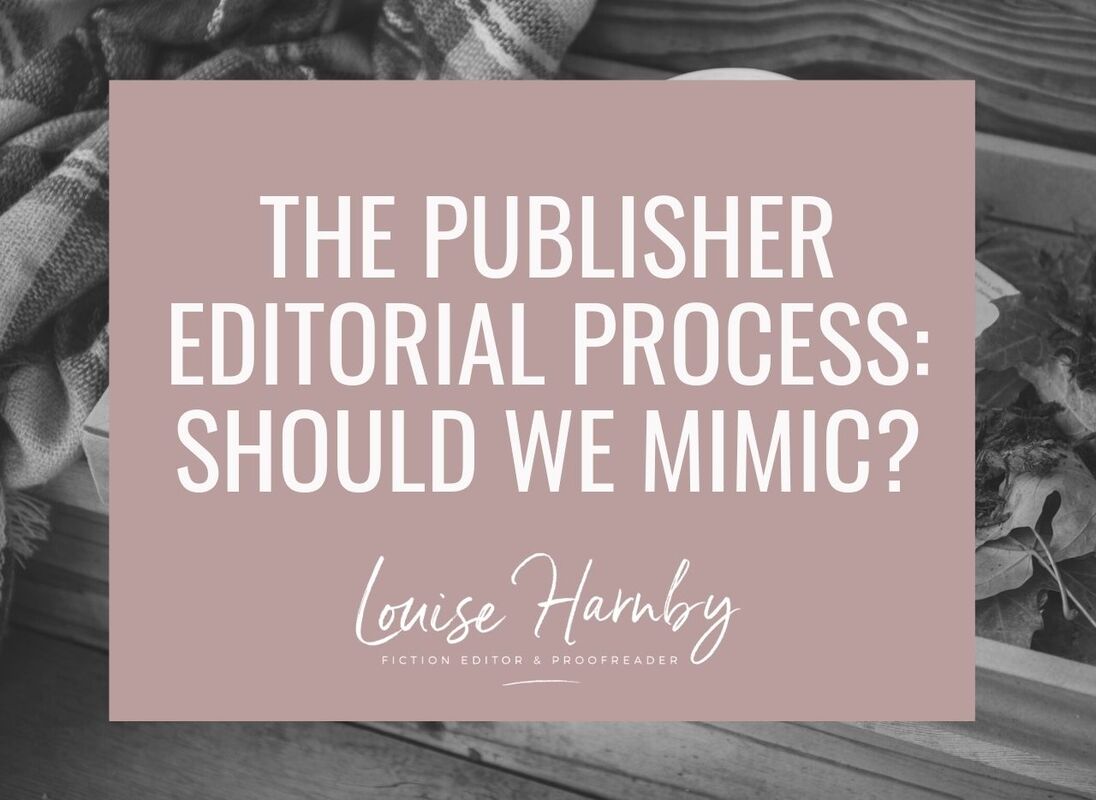How do mainstream publishers produce books? And should you mimic them? Help for self-publishers15/5/2017
Unsure how mainstream publishers manage the editorial process? This post provides an overview and shows you why books take so long to get to market and what some of the costs are (to the publisher and even to the author!).
A note on scheduling … and marketing
In the mainstream publishing industry, books are commissioned and scheduled for publication often up to a year and a half in advance, sometimes longer! That time frame isn’t down to the publisher being busy with other stuff; rather, it’s about giving the relevant team members the necessary time to take the book through a rigorous editing process and carry out a staged prepublication marketing campaign. TOP TIP: When self-publishing, instead of promoting your book at the eleventh hour, plan and implement your marketing campaign well ahead of launch. That way, you can create a fan base and generate excitement about your novel before it goes to market, even pulling in some pre-order sales. How do mainstream publishers produce books? Every press’s editorial production chain is slightly different but the broad principles apply.
3. Design #1 When the key members have agreed that the correction stage is complete, the raw-text files are handed over to a typesetter (if the book is to be printed). This is where the first proofs are created. The typesetter formats the book so that the layout conforms to the agreed house style and is designed so that maximum use of the page space is made. Printing is very expensive so minimizing wasted white space is a key factor in the process. The typesetter needs to balance costs against aesthetics.
This is the FIRST PROOF stage. The first proofs are essentially a first draft of what the finished product will look like when it’s picked off the shelves in a bookshop. The completed first proofs are delivered back to the production manager.
KEY MEMBERS: Author, production manager, typesetter 4. Proofreading The production manager sends the first proofs (perhaps a chunk of paper but increasingly a PDF) to the author and the proofreader (usually a freelancer). Both will check them carefully. The proofreader may be asked to proofread blind or against the original raw-text files worked on by the copyeditor (the latter is much slower). The proofreader’s job is not to make extensive changes, but rather to draw attention to any final spelling, punctuation, grammar, consistency or logic problems missed at earlier rounds of editing or introduced during the typesetting stage. Every change the proofreader makes or suggests needs to be handled carefully in case it has a knock-on effect on the design, the page count and, consequently, the printing costs. It’s demanding work that requires experience and judgement about when to change and when to leave well enough alone. Some publishers even pass some of these costs back to the author – eek!
This is the QUALITY CONTROL or CHECKING stage. The proofreader does not amend the raw text but annotates the paper or digital pages, often using proof-correction markup language (a kind of shorthand that looks like hieroglyphics to the untrained eye!).
KEY MEMBERS: Author, production manager, proofreader, typesetter 5. Final revision: Design #2 Now the proofreader’s corrected file and the author’s version go back to the production manager, who has to collate all the final amendments and instruct the typesetter to make the necessary corrections. The typesetter creates a revised file and returns it to the production manager for sign-off.
This the SECOND PROOF stage. We’re nearly there!
KEY MEMBERS: Author, production manager, typesetter 6. File creation and distribution (print, digital or both) The final countdown! The production manager works with the typesetter and printer to create the final print book that will be delivered to the relevant distribution channels. In the case of e-books, the production manager will commission a digital formatter to create e-Pub files that are compatible with the market’s major e-readers and other digital devices.
This is the PUBLISHING stage. The book is delivered to market!
KEY MEMBERS: Production manager, digital formatter, typesetter, printer The elusive publishing deal and the editorial process As you can see, there are a lot of stages and a lot of people involved. And that’s why it takes so long and why it’s so expensive to publish. It also explains, in part, why writers can find it so hard to get a mainstream publishing deal; if the book bombs, there’s no return on all that investment. For publishers, novels that need a lot of work, or that don’t fit neatly into an obvious and currently popular genre, are difficult to sell (the high-street bookshops don’t know where to place them to grab readers’ attention). Should you mimic the mainstream publishing industry's editorial process? Mimicry will bring you quality – there’s no doubt about that. It’ll also require a major investment in time and money. We all have to make difficult choices about what we do to make the things we create the best they can be. But there are limitations. I’m passionate about the independent author’s right to write, and I know that your pockets aren’t bottomless. I hope this has shed some light on the mainstream publishing process! Until next time …
Louise Harnby is a line editor, copyeditor and proofreader who specializes in working with crime, mystery, suspense and thriller writers.
She is an Advanced Professional Member of the Chartered Institute of Editing and Proofreading (CIEP), a member of ACES, a Partner Member of The Alliance of Independent Authors (ALLi), and co-hosts The Editing Podcast. Visit her business website at Louise Harnby | Fiction Editor & Proofreader, say hello on Twitter at @LouiseHarnby, connect via Facebook and LinkedIn, and check out her books and courses.
2 Comments
15/5/2017 12:18:59 am
Another thoughtful and helpful article for writers! Not all books are novels, though. For those writing nonfiction, you might want to explain what developmental editors can do for nonfiction and then also add an indexing stage to the list.
Reply
Louise
15/5/2017 09:38:43 am
Fair point, Carol! I work with fiction authors, so aimed the post at them, but I'll do a follow-up on indexing too. Thanks so much for the nudge!
Reply
Leave a Reply. |
BLOG ALERTSIf you'd like me to email you when a new blog post is available, sign up for blog alerts!
TESTIMONIALSDare Rogers'Louise uses her expertise to hone a story until it's razor sharp, while still allowing the author’s voice to remain dominant.'Jeff Carson'I wholeheartedly recommend her services ... Just don’t hire her when I need her.'J B Turner'Sincere thanks for a beautiful and elegant piece of work. First class.'Ayshe Gemedzhy'What makes her stand out and shine is her ability to immerse herself in your story.'Salt Publishing'A million thanks – your mark-up is perfect, as always.'CATEGORIES
All
ARCHIVES
July 2024
|
|
|
|


















 RSS Feed
RSS Feed





